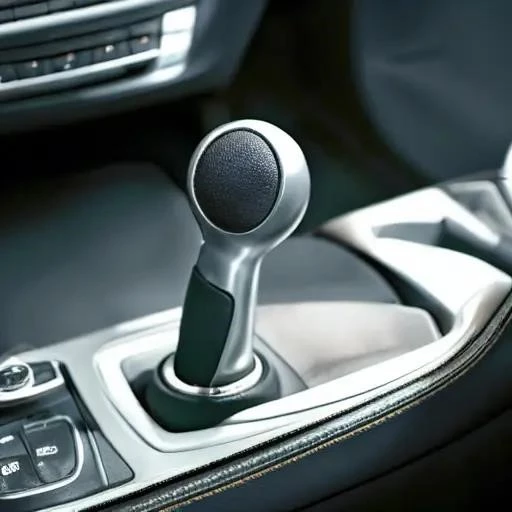In an automotive landscape increasingly dominated by lightning-fast automatics and the silent surge of electric powertrains, the manual transmission has long been whispered about as a relic, a charming but ultimately doomed artifact of a bygone era. For years, industry pundits and driving enthusiasts alike have lamented its seemingly inevitable demise, observing a steady decline in its availability across manufacturer lineups. Yet, amidst this accelerating shift towards convenience and efficiency, one iconic German marque is courageously holding the line, offering a glimmer of hope to purists and engaging drivers worldwide. BMW, particularly its vaunted M division, is not just clinging to the stick shift; it’s actively championing its enduring appeal, ensuring that the visceral connection between driver and machine remains very much alive.
This steadfast commitment to the three-pedal experience is more than mere nostalgia; it’s a calculated response to a passionate, persistent demand that continues to resonate deeply within high-performance segments. While many brands have fully transitioned away, BMW’s M division has shrewdly recognized that for a significant cohort of its clientele, the joy derived from precisely timing a downshift or perfectly executing a heel-toe maneuver is irreplaceable. This dedication is gloriously manifest in certain 2025 models, proving that the manual gearbox, far from being consigned to history, is still a vibrant, living component of some of the most exciting cars on the road today, inviting enthusiasts to rediscover the pure, unadulterated thrill of driving.
| Category | Information |
|---|---|
| Topic Focus | Current BMW Models Offering Manual Transmissions (as of 2025) |
| Key Models (2025) | BMW M3 (Base Model), BMW M4 (Base Model), BMW Z4 M40i |
| Engine (M3/M4) | 3.0-liter Twin-Turbo Inline-Six (S58), 473 hp, 406 lb-ft torque |
| Transmission Type | 6-speed Manual Transmission |
| Drivetrain (M3/M4) | Rear-Wheel Drive (RWD) for Manual Variants |
| MSRP (M3 Base) | From $71,800 USD (as reported) |
| Industry Trend | General decline of manual transmissions, but strong niche demand in performance cars. |
| BMW’s Stance | Committed to offering manuals in M products as long as demand remains strong. |
| Reference Link |
The allure of the manual transmission is undeniably profound, transcending mere mechanical function to become a deeply emotional experience. It transforms every journey into an active participation, demanding focus, skill, and a ballet of foot and hand that connects the driver directly to the road. This isn’t just about speed; it’s about control, engagement, and the immense satisfaction derived from precisely manipulating a powerful machine. As Dave, a seasoned enthusiast, eloquently puts it, “There’s only one reason that matters—it’s fun! I feel like I’m doing something. Also, it is a bit harder at speed, and the challenge is cool.” This sentiment echoes the primal joy of cooking your own food or changing your own oil; it’s about the intrinsic reward of effort and mastery, a counter-narrative to a world increasingly automated.
Across the industry, the manual gearbox is indeed on a challenging trajectory, with fewer and fewer new models offered with it. Yet, BMW’s M division stands as a powerful testament to the enduring power of driver demand. The head of BMW’s M performance division, Frank van Meel, recently acknowledged that while they were going to stop developing new manual transmissions, they would continue using them until they were completely phased out, hinting that the M2 might be the brand’s last new car with a manual. However, the strong local uptake figures for manual transmissions in M products throughout 2023, coupled with the industry’s surprising shift back towards manual options (such as Toyota’s GR Supra offering a stick shift, which arguably influenced the Z4’s manual debut), powerfully underscore this unique market segment’s vitality. This isn’t merely a niche; it’s a passionate community that BMW is wisely choosing to serve, acknowledging that some experiences transcend mere metrics.
Looking ahead, while the long-term future of the manual transmission remains uncertain in an increasingly electrified world, BMW’s current stance offers a wonderfully optimistic outlook for enthusiasts. It’s a persuasive argument that performance isn’t solely measured in 0-60 times or lap records but also in the sheer joy and sensory immersion of the drive. By integrating insights from a dedicated fanbase and celebrating the intricate dance of clutch and gear lever, BMW is not just selling cars; it’s selling an experience, a connection that harks back to the very essence of driving. So, for those who believe that driving should be an active pursuit, a dialogue between human and machine, the good news is clear: the manual transmission, particularly within the hallowed halls of BMW M, is not only alive but thriving, inviting a new generation to master its rewarding complexities before its ultimate curtain call.






